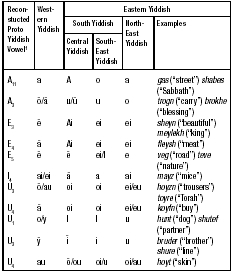

Hotten noted that "The Jews use these terms very frequently." The earliest printed mention of the word Yid in English was in The Slang Dictionary published by John Camden Hotten in 1874. See also: Jew § Etymology, and Jew (word) History However, the Football Association, Merriam-Webster, and Cambridge Dictionary all state that the word is "offensive". In Britain, the word "yid" and its related term "yiddo" are also used to refer to the supporters and players of Tottenham Hotspur, originally in a derogatory manner by rival fans, but now also used as self-designation in a non-pejorative sense by Tottenham fans, according to the Oxford English Dictionary. It is used as a derogatory epithet by antisemites along with, and as an alternative to, the English word 'Jew'. When pronounced / ˈ j ɪ d/ (rhyming with did) by non-Jews, it is commonly intended as a pejorative term. It is not usually considered offensive when pronounced / ˈ j iː d/ (rhyming with deed), the way Yiddish speakers say it, though some may deem the word offensive nonetheless. Its usage may be controversial in modern English language.


It is used as an autonym within the Ashkenazi Jewish community, and also used as slang by European football fans, anti-semites, and others. The word Yid ( / ˈ j iː d/ Yiddish: ייִד) is a Jewish ethnonym of Yiddish origin.
YIDDISH WORD YED FREE
"Incidentally, the kid used all our equipment, fiddling like the klutz he is with a brand-new Panavision camera, which now when I press the button makes a sound like when you turn slowly the wood handle on those tin party noisemakers Elsie calls groggers.Look up yid in Wiktionary, the free dictionary. There does not appear to be any written evidence of klutz in English prior to 1959, when Carl Reiner explained the meaning of the word to the Los Angeles Times: " a dancer who dances as good as he can, but instead of just applause he also gets laughter." It comes from the Yiddish word klots, which means 'wooden beam.' Example: The word came to our language but a few generations ago, began its hardscrabble life as a non-standard lexical item, and through dint of hard work and having the good fortune of beginning and ending with two very funny letters, managed to make itself a widely accepted and useful member of our language.

The story of klutz is a classic immigrant's tale. : a person who often drops things, falls down, etc. Buckley, Aberdeen American News, 12 June 1973 "The turgidity of Clifford's presentation makes it sadistic to dwell on the analysis, but one must, one absolutely must, since such chutzpah requires recognition." - William F. A common non-lexicographic way to define chutzpah is to say that it is exemplified by the man who kills his parents and then asks the court for mercy, on the grounds that he is an orphan. Some speakers of Yiddish feel that this word has been diluted in English use, and no longer properly conveys the monumental nature of the gall that is implied. Chutzpah comes from the Yiddish khutspe, which is itself descended from the Hebrew ḥuṣpāh. Its first known occurrence in English dates back to 1867 many of the other Yiddish words we've borrowed don't appear in print until the middle of the 20th century. : supreme self-confidence About the Word:Ĭhutzpah is not only one of the most well-known words of Yiddish origin we have in English, it was also one of the first to be borrowed. Nice." - Olivia Goldsmith, The First Wives Club, 2008 "And I got bubkes for alimony and child support. The Yiddish word bubkes (also spelled in both English and Yiddish as bupkes or bubkus) is thought to be short for the colorful kozebubkes, which means 'goat droppings'-something you may want to consider the next time you find yourself saying 'I've got bubkes.' Example: : the least amount also : nothing About the Word: It should be noted that these are not direct English translations of Yiddish words they are words from Yiddish that have been sufficiently naturalized in our language to be included in an English language dictionary. What follows is a list of some of the more well-known words of Yiddish origin to have entered English. More recently, in the last hundred years, we've added many Yiddish words in our melting pot. We've been borrowing liberally from other languages-French, Latin, and Italian to mention just a few-for centuries.


 0 kommentar(er)
0 kommentar(er)
